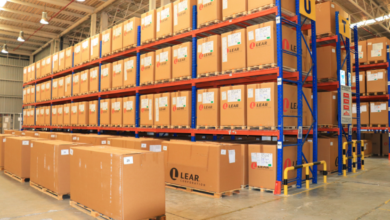Importance of FSSAI Registration for Small Businesses

Ensuring Food Safety and Quality
FSSAI Registration is crucial for small businesses in the food sector as it ensures that the food products they manufacture, distribute, or sell meet the necessary safety and quality standards. This registration helps maintain high hygiene and safety standards, reducing the risk of food contamination and foodborne illnesses. By adhering to FSSAI guidelines, small businesses can assure their customers that their products are safe to consume, which builds trust and enhances their reputation.
Legal Compliance
FSSAI registration is a mandatory requirement for all food-related businesses in India, regardless of their size. Operating without this registration is illegal and can lead to severe penalties, including hefty fines and the closure of the business. By obtaining FSSAI registration, small businesses comply with the law and avoid legal complications that can disrupt their operations and cause financial losses.
Market Access and Expansion
Having an FSSAI registration number is essential for small businesses looking to expand their market reach. Many retailers, distributors, and online marketplaces require proof of FSSAI registration before partnering with a food business. This registration opens up new opportunities for small businesses to enter larger markets and collaborate with established players in the industry. It also facilitates easier export of food products, as FSSAI certification is recognized internationally, adding credibility to the brand.
Building Consumer Trust
Consumers are becoming increasingly aware of food safety and quality standards. FSSAI registration acts as a mark of trust and reliability, assuring customers that the products they purchase are safe and of high quality. This trust is crucial for small businesses to build a loyal customer base and sustain long-term growth. Displaying the FSSAI logo on packaging and marketing materials can significantly enhance brand credibility and attract more customers.
Promoting Transparency and Accountability
FSSAI registration promotes transparency and accountability within the food industry. It requires businesses to maintain proper records, follow good manufacturing practices, and regularly update their processes to comply with safety standards. This transparency helps in the efficient monitoring and control of food quality, reducing the chances of adulteration and fraud. Small businesses that adhere to these practices demonstrate their commitment to ethical business operations and consumer welfare.
Access to Government Schemes and Benefits
Registered businesses can avail of various government schemes, subsidies, and benefits designed to support the growth of small enterprises in the food sector. These schemes may include financial assistance, technical training, and support for infrastructure development. FSSAI registration makes small businesses eligible for such programs, providing them with the resources needed to enhance their operations and compete effectively in the market.
Enhancing Brand Value and Recognition
FSSAI registration contributes significantly to enhancing the brand value of a small business. When a business is FSSAI registered, it signals to consumers that the company prioritizes food safety and quality. This perception can set a small business apart from its competitors, making it a preferred choice among consumers. Additionally, the FSSAI logo on products serves as an instant recognition factor, which can help in building a strong brand identity in the market.
Facilitating Financial Support
Many financial institutions and investors consider FSSAI registration as a vital factor before providing loans or investments to food businesses. This registration serves as proof of the business’s commitment to maintaining high standards of food safety and quality. As a result, small businesses with FSSAI registration may find it easier to secure funding and investment, which is crucial for their growth and expansion.
Boosting Employee Morale and Training
FSSAI registration requires businesses to train their employees in food safety practices and hygiene standards. This training not only ensures compliance but also boosts employee morale by empowering them with the knowledge and skills to perform their jobs more effectively. A well-trained workforce is more productive, which can lead to improved overall business performance and customer satisfaction.
Gaining Competitive Advantage
In a competitive market, FSSAI registration can give small businesses an edge over those that are not registered. It demonstrates a commitment to quality and safety, which can be a decisive factor for consumers when choosing between different brands. This competitive advantage can translate into higher sales, increased customer loyalty, and better market positioning.
Simplifying Regulatory Processes
FSSAI registration simplifies various regulatory processes for small businesses. It provides a single point of reference for all food safety regulations, making it easier for businesses to stay compliant with the latest standards. This streamlined approach reduces the administrative burden on small businesses, allowing them to focus more on their core operations and growth strategies.
Encouraging Innovation and Improvement
FSSAI encourages continuous improvement and innovation in food safety practices. Small businesses that are FSSAI registered are motivated to adopt the latest technologies and best practices to enhance their product quality and safety. This focus on innovation can lead to the development of new and improved products, helping businesses stay ahead of market trends and meet changing consumer demands.
Community and Social Impact
By adhering to FSSAI standards, small businesses contribute to the overall health and well-being of the community. Ensuring that food products are safe and of high quality helps prevent health issues related to foodborne illnesses, thereby enhancing public health. Moreover, responsible food practices can lead to positive social impact, strengthening the business’s reputation and fostering goodwill within the community.
Note: Apply for fssai license renewal through fssai portal.
Conclusion
FSSAI registration is not just a legal requirement but a crucial step for small businesses to ensure food safety, build consumer trust, and expand their market presence. It promotes transparency, accountability, and access to various government benefits, contributing to the overall growth and sustainability of the business. By prioritizing FSSAI registration, small businesses can create a strong foundation for success in the competitive food industry.






